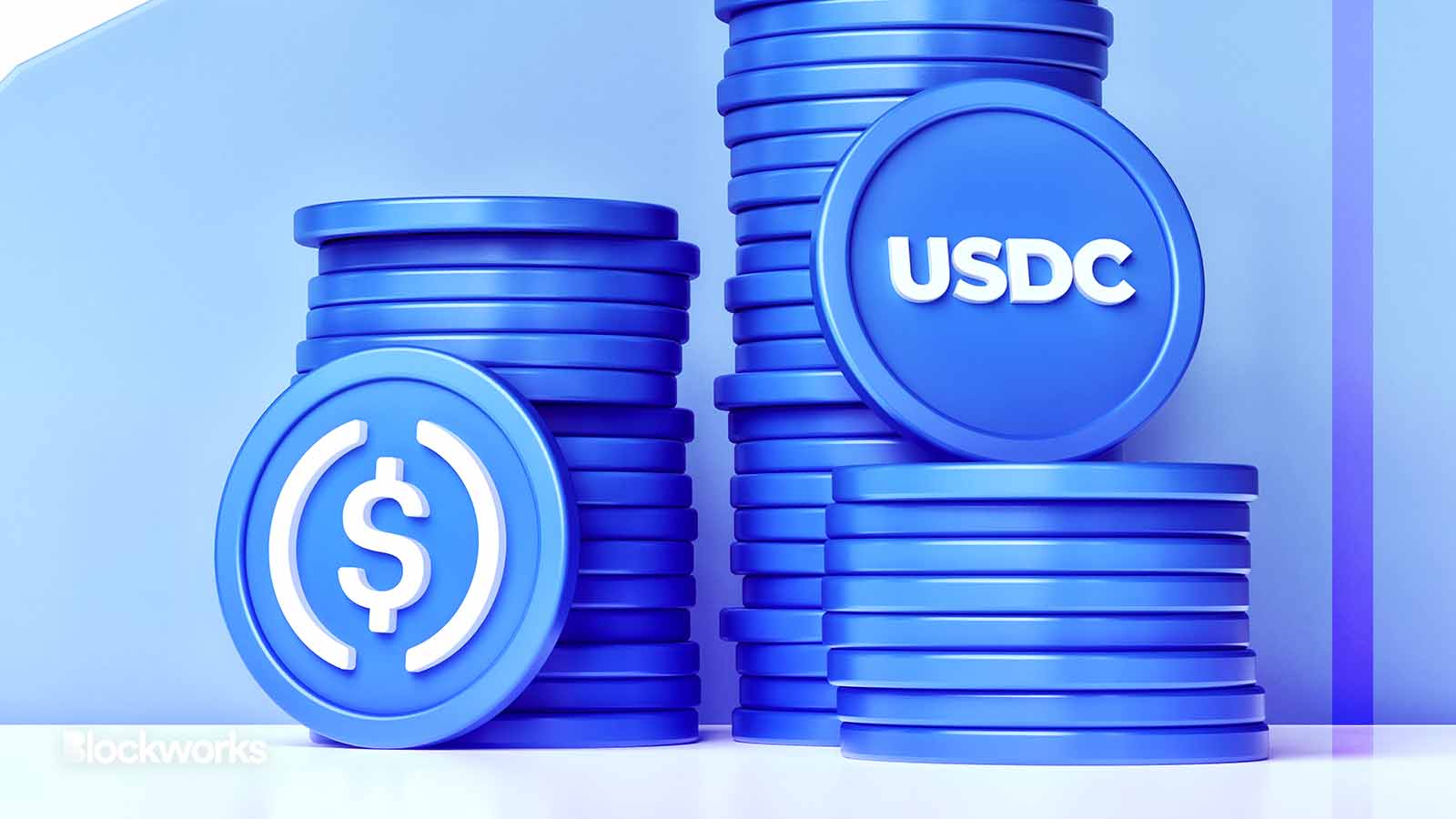USDC Depeg Insurance From Etherisc Hits Market
Etherisc is not a licensed insurance company, rather an open-source, decentralized insurance protocol

David Sandron/Shutterstock modified by Blockworks
Decentralized insurance protocol Etherisc on Thursday announced its new peer-to-peer coverage option, intending to cover participating users should USDC depeg again in the future.
Customers who have an Etherisc-insured non-custodial wallet that holds USDC deposits are entitled to a payout when and if the price of Circle’s stablecoin falls “below its $1 USD pegged value by 0.5% for a period longer than 24 hours,” according to a statement from Etherisc. The protocol will rely on a Chainlink data feed to verify price fluctuations.
Should a depegging scenario play out, customers have 7 days to claim their payout in USDT, the value of which would be determined by Ethereum-based smart contracts, according to Etherisc. Initially, the minimum protected amount per wallet is 2,000 USDC, though Etherisc said it has plans to roll out coverage to other stablecoins in the future.
Etherisc CEO and co-founder Christoph Mussenbrock said he believes that this product will bring stability and predictability for the protocol’s approximately 30,000 users, especially in hindsight of the US bank failures in March.
Read more: After Bank Failures, Where Will Crypto Firms Turn?
“The purpose behind stablecoins is to provide a predictable haven within the volatile world of cryptocurrency,” he said, adding that his team “saw a clear gap in the market for stablecoin protection and the launch of depeg cover on Etherisc brings immediate peace of mind for customers and their USDC deposits.”
Unlike a traditional insurance plan where you buy coverage from a large company, Etherisc is offering a marketplace that “connects people seeking cover with investors providing collateral” in the form of tether tokens, Mussenbrock told Blockworks. Investors set premium prices and the duration of coverage. Those seeking protection are then able to shop for the best price, he added.
Etherisc wasn’t the first to the market with a similar type of solution. InsurAce sells depeg coverage for stablecoins USDC, BUSD, MIM and USDT, all of which are currently sold out. And Nexus Mutual also sells coverage in case crypto-collateralized stablecoin OUSD were to fail.
Blockworks reached out to InsurAce and Nexus Mutual for comment but did not receive an immediate response.
Notably, Etherisc is not a licensed insurance company which means it can’t legally brand its products as “insurance.”
Get the news in your inbox. Explore Blockworks newsletters:
- The Breakdown: Decoding crypto and the markets. Daily.
- 0xResearch: Alpha in your inbox. Think like an analyst.






